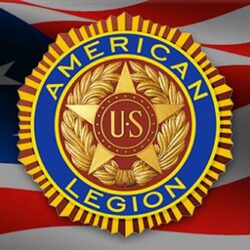For almost nine years, Ryan Flynn served in the Army as a military police officer. Service was his calling, but life after the uniform brought a new kind of battle: severe PTSD.
Today, Flynn has found a surprising source of calm: driving the Louis Stokes Cleveland VA Medical Center’s new golf cart. As a volunteer with the Center for Development & Civic Engagement, he shuttles Veterans and visitors from the parking garage to the atrium entrance. For patients with mobility challenges, the ride saves steps. For Flynn, it eases the weight of PTSD.
“I think just getting out of the house is a good thing to do,” Flynn said. “It’s no good to anybody to stay at home. If you can be outside helping people, connecting with other Veterans, it makes a difference. I’ve always looked up to the older Veterans, so this is another chance to engage with them, be productive and just be out of the house. And yeah, it calms me.”
Flynn first heard about the golf cart role when he reached out looking for community service opportunities. His experience came naturally from his first job as a caddy, and he grew up around golf courses. “So yeah, it’s a natural fit,” he said, smiling.
For Flynn, connecting with other Veterans comes more easily than talking with civilians. “Most people are supportive of my service,” he said. “But there are some who aren’t… the Veteran community understands in a way others can’t.”
When asked what advice he has for other Veterans struggling with PTSD, Flynn doesn’t hesitate: “Be patient with it,” he said. “Reach out and get connected with the community. You don’t have to wait until you’re in crisis to ask for help. Don’t be too hard on yourself; give yourself some grace. You can’t predict how PTSD is going to affect you, but you can make sure you have good people around.”
For those visiting Louis Stokes Cleveland VA, Flynn will be waiting, and he’ll be golf cart ready to offer you a lift and listening ear.
Support for PTSD
VA offers several different PTSD treatment options that work and can help you regain a sense of control over your life. You and your VA health care provider can decide together which treatment is best for you—based on benefits, risks, side effects and other preferences.
If you’re a Veteran in crisis or concerned about one, contact the Veterans Crisis Line to receive 24/7 confidential support. You don’t have to be enrolled in VA benefits or health care to connect. To reach responders, dial 988 then press 1, chat online at VeteransCrisisLine.net/Chat or text 838255.
This article was originally published on the Orlando Health care System site and has been edited for style and clarity.
